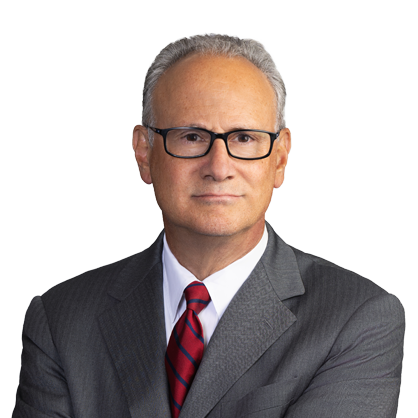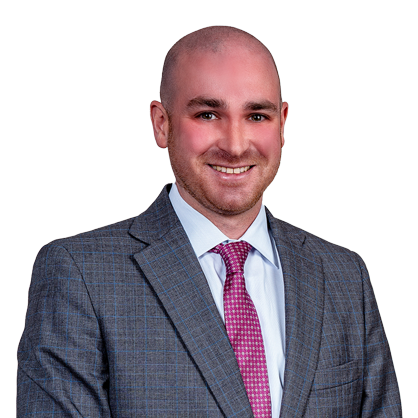Insights
Thought Leadership
New Jersey Supreme Court Moves Closer to Daubert Standard for Admissibility of Expert Testimony
In a seminal ruling handed down on August 1, the New Jersey Supreme Court held that trial courts must assess the scientific reliability of an expert's proposed testimony by considering a number of factors developed under the federal Daubert standard. The Supreme Court, in In re Accutane Litigation, Docket No. 079958, not only clarified the standard for admissible expert testimony in a toxic tort/medical causation case but also addressed the standard by which the Appellate Division is to review trial court determinations on expert opinion admissibility in civil cases. The holding will provide opportunities to limit the number of cases that will be presented to a jury based on novel or not widely accepted theories of causation.
The underlying dispute involved the plaintiff's claim that a causal connection existed between the prescription medication Accutane, which is used in the treatment of certain acne conditions, and Crohn's disease, a chronic gastrointestinal illness. Plaintiff's experts relied on evidence such as animal studies and case reports to arrive at their opinion, while rejecting a number of epidemiological studies that concluded Accutane is not causally associated with the development of Crohn's disease. Defendant's experts opined that epidemiological studies are preferred to case reports in the hierarchy of medical evidence.
The trial court held a preliminary hearing on the admissibility of the expert testimony associating Accutane and Crohn's disease. Following the hearing, the trial court excluded plaintiff's experts' testimony, finding it lacking, conclusion driven, and dismissive of better evidence that was contrary to their opinions. The Appellate Division reversed the trial court, finding that although a trial court's decision to admit or exclude evidence is subject to the abuse of discretion standard, less deference should be accorded by the Appellate Division in connection with the trial court's determinations regarding expert testimony. 451 N.J. Super. 153, 163-64, 211 (App. Div. 2017).
The Supreme Court reversed the Appellate Division, thereby reinstating the trial court's exclusion of plaintiffs' expert testimony. The Supreme Court noted that New Jersey was in the "vanguard of courts to be persuaded that adherence to the Frye [v. United States, 293 F. 1013 (D.C. Cir. 1923)] general acceptance standard as the sole test for assessing reliability of scientific expert testimony was unsatisfactorily constricting for fairly assessing reliability in certain areas of novel or emerging fields of science." New Jersey's standard was broadened in the context of toxic tort litigation by the court's decision in Rubanick v. Witco Chemical Corp., 125 N.J. 421 (1991), which held that the proper reliability inquiry was whether others in the field used similar methodologies.
However, unlike other jurisdictions, New Jersey never adopted the so-called Daubert standard set forth in Daubert v. Merrell Dow Pharmaceuticals, Inc., 509 U.S. 579 (1993), which has been accepted by a majority of states either explicitly or implicitly. The Daubert standard provides a multifactor test to determine whether a qualified expert would be permitted to testify and is essentially set forth in Federal Rule of Evidence 702.
Although the Supreme Court did not officially declare New Jersey a Daubert jurisdiction, it nevertheless indicated that "in respect of the gatekeeping role, we emphasize that we expect the trial court to assess both the methodology used by the expert to arrive at an opinion and the underlying data used in the formation of the opinion." Importantly, it noted that "[m]ethodology, in all its parts, is the focus of the reliability assessment, not outcome." The court identified the following Daubert factors "as pertinent for consideration, but not dispositive or exhaustive:"
(1) Whether the scientific theory can be, or at any time has been, tested;
(2) Whether the scientific theory has been subjected to peer review and publication, noting that publication is one form of peer review but is not a "sine quo non;"
(3) Whether there is any known or potential rate of error and whether there exist any standards for maintaining or controlling the technique's operation; and
(4) Whether there does exist a general acceptance in the scientific community about the scientific theory.
In so doing, the court stated, "[i]t is not for a trial court to bless new 'inspired' science theory; the goal is to permit the jury to hear reliable science to support the expert opinion."
Lastly, the Supreme Court held that the Appellate Division, in reversing the trial court, "veered off" the appropriate standard of review. The court reaffirmed that "the abuse of discretion standard applies in the appellate review of a trial court's determination to admit or deny scientific evidence on the basis of unreliability in civil matters." In such cases, "the trial court has been entrusted with methodology-based review as the gatekeeper of expert testimony." The court found no governing legal authority in New Jersey for a "less-deferential standard" in civil matters, as had been applied by the Appellate Division.
The decision is likely to have a significant impact on toxic tort and medical causation cases in which a plaintiff's expert seeks to offer a scientific opinion connecting an injury or illness with a specific drug, chemical substance or environmental condition. In such cases, experts will be required to justify their conclusions by reference to tested, reliable methodologies, and courts will assess the admissibility of their testimony based on factors including whether there is a general acceptance in the scientific community about the expert's theory. The new standard adopted by the Supreme Court set a higher bar for the admissibility of such testimony and should reduce the number of cases that proceed to trial on the basis of novel or untested scientific claims of causation.




